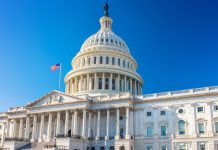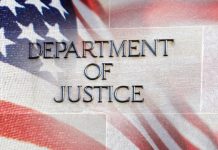The United States District Court for the District of New Hampshire has found in favor of the New Hampshire Lottery Commission (NHLC) in the long-awaited ruling on last year’s revised opinion of the Wire Act by the US Department of Justice (DoJ). The act, it said, applies solely to interstate wagers on sports wagers, not all forms of mobile gaming.
In a ruling that will bring relief to lottery, poker and casino operators across the country, United States District Judge Paul Barbadoro stated: “I hereby declare that § 1084(a) of the Wire Act, 18 U.S.C. § 1084(a), applies only to transmissions related to bets or wagers on a sporting event or contest. The 2018 OLC Opinion is set aside. SO ORDERED.”
Any relief might, however, be temporary as it is highly likely that the DoJ will appeal Barbadoro’s ruling. And it does little to further the cause for US sports betting operators who remain firmly shackled by the act. Sports attorney Aalok Sharma tweeted on the result: “Pretty accurately sums up the NH Opinion. Again – this was always going to have 0 impact on sports betting but it gave enough people heartburn and slowed down some momentum. Expect a DOJ appeal.”
Among the first to respond positively to the news was Jeff Ifrah, Founder of iDEA Growth. “We are thrilled with today’s order from Judge Paul Barbadoro of the United States District Court for the District of New Hampshire that has reaffirmed that the Wire Act applies only to sports betting and not mobile gaming,” he noted.
“This order today means that states can continue to legalize online entertainment, including casino, lottery and poker. Further, the court set aside the 2018 OLC Opinion from the Justice Department finding its reasoning to be completely erroneous. As the momentum continues through the states to legalize mobile gaming, states can look to New Jersey to see the success of including mobile gaming.”
Barbadoro, in his ruling, found that the NHLC had openly engaged for many years in conduct that the 2018 Office of Legal Counsel opinion now brands as criminal. He noted that there was a substantial risk that the DoJ would pursue the NHLC in the courts. which had indicated it intended to continue its online activities. Furthermore, he refuted the DOJ’s argument that there was only a low risk of prosecution. Barbadoro also agreed with the plaintiffs that they have standing to sue.
Ultimately, the District Court failed to be moved by the DoJ’s grammatical re-interpretation of the Wire Act, namely a missing comma, and found instead on the basis of context. The outcome is effectively a hiatus in legal proceedings and some breathing space for the lotteries et al. But it’s almost a foregone conclusion that the case will rear its head again, next time in SCOTUS.














